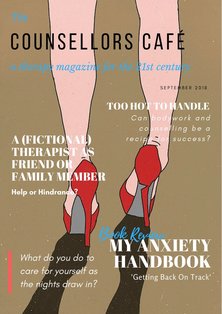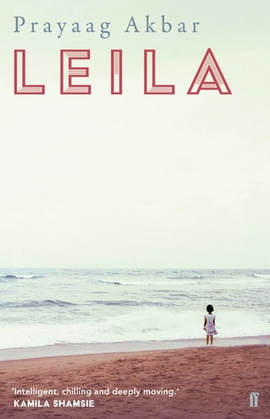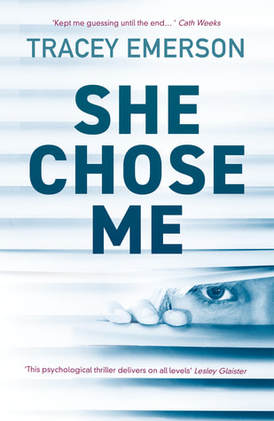Leila by Prayaag Akbar
Walls were already being erected between the different communities when Leila and Riz met at school. On marriage, she converted to Islam, but many outside their immediate circle still considered their relationship taboo. Unfortunately her brother-in-law also disapproved, and Shalini suspects he was responsible for summoning the Repeaters to whisk their daughter away.
Now Riz is dead, although he returns in spirit form, especially on Leila’s birthday when Shalini lights candles by the wall of Purity One. After a few months at a re-education camp, she lives alone in The Towers, an area for misfits only a few steps up from those who eke out their existence searching for jewels of salvageable material in enormous landfill sites.
A quote from Neel Mukherjee on the back of my copy, courtesy of publishers Faber and Faber, says “Leila does for the barbarity of contemporary Indian nationalism and what The Handmaid’s Tale did for the yoke of patriarchy”. But, in the age of Brexit and Trump, the West is equally at risk of becoming more compartmentalised, with the environmental rape by the rich causing increasing misery for the poor.
Related in short fragments, I felt there was some unnecessary obfuscation in the early pages. But I enjoyed following Shalini’s plight and her search for her daughter once the story got going.
She Chose Me by Tracey Emerson
Adopted as a baby, Cassie has been looking for her birth mother since she was a child. Now she feels she’s found her, she’ll do whatever it takes not to let go.
The term “psychological thriller” can send a shiver down my spine, and not in the way it’s intended. Implausible plots and paper-thin characters are so often the order of the day. But, tempted by the themes suggested in the blurb, I thought I’d give this debut a go. And wow, I’m glad I did. It’s not easy, as I know from my own psychological suspense novel, Underneath, to combine page-turning tension with psychological depth, but Tracey Emerson pulls it off magnificently. She Chose Me is an intelligent and accessible read that continually surprises and intrigues.
The story unfolds through the first-person accounts of the two main characters and, while there’s often a hiccup of disorientation when leaving one head for another (perhaps intentionally so to mimic the characters’ states of mind), the structure enables the reader to enjoy their differing interpretations of events without tedious repetition. Stressed and lonely, and troubled by anonymous letters and phone calls, Grace’s unravelling is convincing, especially when paired with her diary entries from a hospital ward twenty years before.
But it’s Cassie who carries the novel: a disturbed and disturbing young woman with an impressive capacity to bend reality to serve her own psychological needs. Although ruthless in her determination to fill the mother-shaped hole inside herself, and outrageous in some of her strategies for going about it, she nevertheless arouses our sympathy through both the tragedy of her situation and the kindness she summons when the role she is playing requires it.
Although the story is very different to that of my suspense novel, I was pleased to discover some similar themes, especially visiting a mother with dementia; returning home after a long time abroad; the vulnerability underlying some villainy and abortion and a woman’s right to choose. Adoption also features in my possibly third novel, Matilda Windsor Is Coming Home, although with a much more positive outcome for the child than in She Chose Me. Another coincidence is that I began writing a short story set in a care home a couple of days before his novel arrived on my doormat, courtesy of publishers Legend Press. Suffice to say I’ll be very interested to see where Tracey Emerson goes with her writing next.
Although both characters have, or have had, serious mental health issues it’s good to see this not sensationalised, even in a thriller. Alas, where there’s fictional mental health, there’s often a fictional therapist and, while most readers will easily accept Dr Costello, I was unconvinced by his eclectic mix of medication, paternal advice and chitchat. But I appreciated his function in closing the plot loophole towards the end and providing Cassie with this gem, combining humour with a realistic example of directive therapy (p38):
Anger blazed inside me. Remembering a technique Dr Costello gave me to use in such moments, I visualised the anger as a ball of knotted golden thread, only I swallowed it, the reverse of the proper exercise, in which the knot of anger is unravelled and pulled out through the mouth in a long, golden line.
She Chose Me joins three other novels featuring therapists (Jott; Spaceman of Bohemia; Whistle in the Dark) as one of my favourite reads of the year.

On the subject of fictional therapists, I wonder if you’ve seen my latest post for Counsellors Cafe magazine on A (fictional) therapist as friend or family member? My next post for the site, in November, is about the therapy connections with my first short story collection, Becoming Someone. Although none of these forty-two pieces is explicitly about therapy, they all feature a character’s journey to personhood, or being blocked along the way.

























 RSS Feed
RSS Feed





















